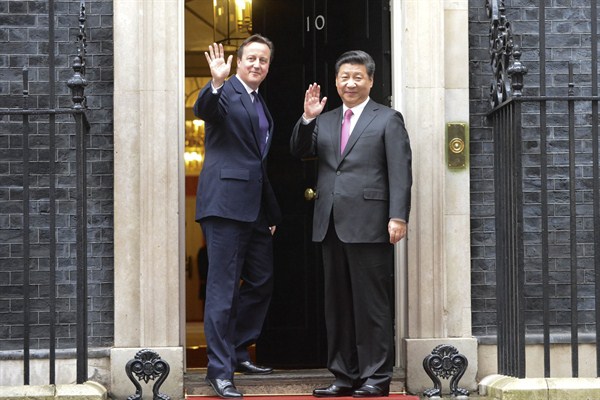Chinese President Xi Jinping’s visit to the United Kingdom this week has largely attracted the wrong kind of headlines. Reactions from experts and officials in the United States and across Europe have been scathing, ranging from the bemused to the disturbed. Many contend that Britain’s China policy, at the instigation of Chancellor of the Exchequer George Osborne, has been reduced solely to matters of commerce.
Not only do strategic matters in Asia, human rights concerns, and threats to democracy in Hong Kong appear to be virtually absent from the U.K.’s considerations, the British government gives the impression of believing that this is a necessary precondition for the economic relationship between the two sides to thrive.
The U.K.’s stance is also explicitly competitive with other partners and allies, with its professed aim to be China’s “best” partner in the West, the “most” open to Chinese investment, the “first” to join the Asian Infrastructure Investment Bank, and the “only” one to have a high-ranking official—Osborne—visit restive Xinjiang.

